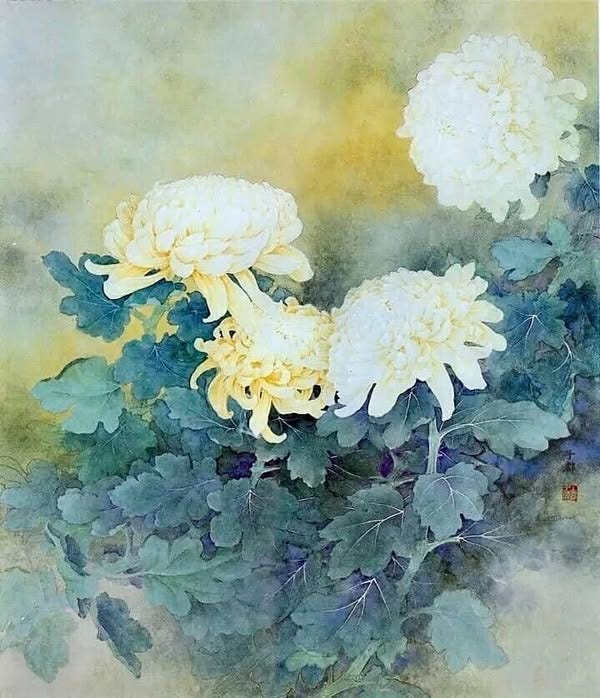The Endless Day Of Gloom
Real positive title, isn’t it?
We saw yesterday that Cao Xueqin used an interesting word while describing Zhen Shiyin falling asleep at his desk:
一日,炎夏永晝,士隱於書房閒坐,手倦拋書,伏几盹睡。
One long summer day, while he was sitting at his desk, Zhen Shiyin dropped his book and his head fell to the desk as he dozed off.
The interesting word here is “永晝,” a word that doesn’t seem to have been all that commonly used.
There’s nothing necessarily special about “永晝” as a phrase. 永 means “long” or “eternal,” and 晝 means “day.” However, this particular phrase evokes memories of a well known Song dynasty poem that Cao Xueqin’s readers would have immediately noticed:
《醉花荫》- 李清照
薄霧濃雲愁永晝,瑞腦銷金獸。
佳節又重陽,玉枕紗廚,半夜涼初透。
東籬把酒黃昏後,有暗香盈袖。
莫道不銷魂,簾卷西風,人比黃花瘦
Here’s my loose translation of this poem:
“Drunk in the Shade of the Flowers” - Li Qingzhao
Light mist, thick clouds — an endless day of gloom,
Incense ash curls from the golden incense burner.
The Chongyang Festival comes again,
The jade pillow, the sheer bed-curtain —
The midnight chills pierce through.
By the east fence, wine in my hand as it grows dark,
Hidden fragrances fill my sleeves.
Don’t say this isn’t heartbreaking,
The west wind lifts the curtain,
I’m more frail than a chrysanthemum.
This is a very tender and emotional poem by Li Qingzhao, and was written by her while her husband Zhao Mingcheng was away on official duties. Because he wound up dying several years later, leaving her a widow, the poem is often associated with a premonition of widowhood.
There’s a lot of cool stuff going on here. The most famous line, 簾卷西風, serves as a direct contrast to 永晝 in the first line: the “autumn wind” (西風) is certainly different from the “endless (i.e. summer) day” (永晝). The sudden gust of the west wind “lifts” or “rolls up” (卷) the curtain (簾), showing the author’s fragile emotional state. And then comes the ending, 人比黃花瘦, or “I (人) am more fragile (瘦, literally “skinny”) than a chrysanthemum (黃花).
Also, 重陽 refers to the Chongyang Festival, or the Double Ninth Festival, a traditional holiday that would fall on the ninth day of the ninth month in the Chinese calendar. This was an auspicious date used for paying respects to the gaves of ancestors, climbing mountains, and drinking chrysanthemum liquor. Li Qingzhao, of course, is alone on this holiday, which shows why she feels so cold and longing.
That’s all well and good, of course — but we want to know how this relates to Dream of the Red Chamber, right?




